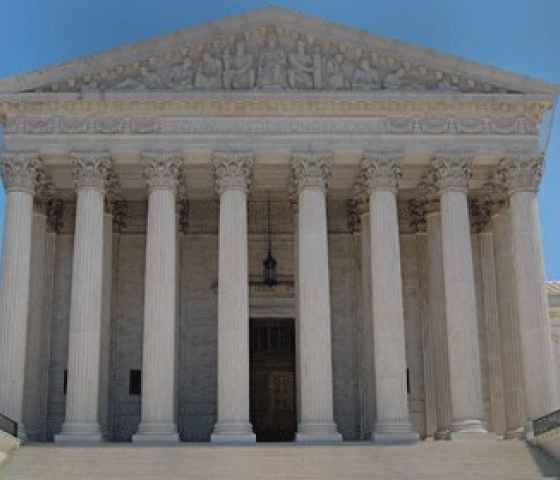*Update: The court issued a temporary order stopping the transfer Sunday night.
Trump Administration Plans Mass Detention of Immigrants at Notorious Military Prison
ALBUQUERQUE, NM – Today, three men in immigration detention asked a federal district court for a temporary restraining order (TRO) to prevent the Trump administration from sending them to Guantánamo. The men, who have a pending case before the court challenging their unlawfully prolonged detention, are migrants who fled Venezuela seeking protection in the U.S. A motion filed on their behalf says they face a risk of imminent transfer to the island prison. The men, currently held at Otero County Processing Center in New Mexico, recognized former fellow detainees in news coverage of recent Guantánamo transfers.
“I fear being taken to Guantánamo because the news is painting it as a black hole... I also see that human rights are constantly violated at Guantánamo, so I fear what could happen to me if I get taken there,” said petitioner Abrahan Barrios Morales.
“The Center for Constitutional Rights has labored for decades to close Guantánamo and secure accountability for human rights abuses perpetrated there against Haitian migrants in the 1990s and hundreds of Muslim men and boys post-9/11. Now, the Trump administration is invoking the specter of Guantánamo, known around the world as a shameful symbol of torture and lawlessness, to terrorize our clients Luis, Leonel, and Abrahan and others like them,” said Jessica Vosburgh, a Senior Staff Attorney at the Center for Constitutional Rights. “Our clients refuse to be used as pawns in this twisted game of punishment theater. The question before the court is simple: will the judge allow the executive branch to smuggle away individuals who have a pending case to a military prison on a remote island where there is no guarantee their rights will be respected or that they will even be able to make a phone call to their lawyers or their loved ones? The answer must be a resounding no.”
“For more than two decades, Guantánamo has been a symbol of human rights abuses and disregard for the rule of law,” said Zoe Bowman, Supervising Attorney at Las Americas Immigrant Advocacy Center in El Paso, Texas, New Mexico and Ciudad Juárez, Chihuahua. “Transferring people from the Otero County Processing Center, where we have ready access to visit our clients, to an offshore prison thousands of miles away from counsel, is appalling. Our clients have already suffered prolonged detention and been subjected to due process violations in Otero for months. The Trump administration is using a facility famous for torture to unnecessarily intimidate and terrorize migrants like our clients, who only wish to reunite with their families and loved ones in the U.S.”
The administration started transporting migrants from the El Paso, Texas, area to the U.S. Naval Base at Guantánamo Bay, Cuba, this past week as it implements Trump’s executive order to create a massive immigration prison there.
“Transferring immigrants from Otero County to Guantánamo is a blatant attempt to obstruct their legal rights by placing them thousands of miles from their families and attorneys,” said Rebecca Sheff, senior staff attorney at the ACLU of New Mexico. “We're outraged that New Mexico and El Paso, against the backdrop of the horrific cruelty of family separation in the first Trump administration, are once again being used as a testing ground for dehumanizing and dangerous immigration policies.”
The court would retain jurisdiction even if the men were transferred, but past administrations have used Guantánamo specifically to evade legal oversight. Even if the men are not denied all legal rights, transfer to Guantánamo would severely limit their ability to meet with attorneys – a key reason the court should block the transfer.
“I fear going to Guantánamo because I’ve seen on the news that it’s a maximum security prison. I’m scared of how I’ll be treated there or that I’ll be tortured, that I won’t be able to communicate with my family or know when I’ll be released,” shared Luis Perez Parra, one of the petitioners. “The news is releasing pictures of the faces of people associated with this, and if that were to be released in my home country, I’m scared of what that could do to me and my family’s safety.”
See here for more information on the case.
